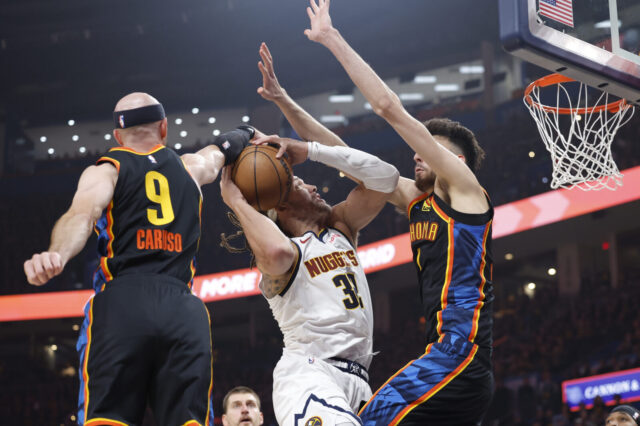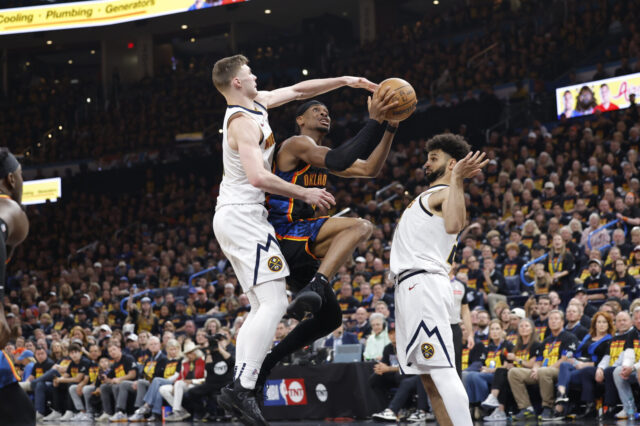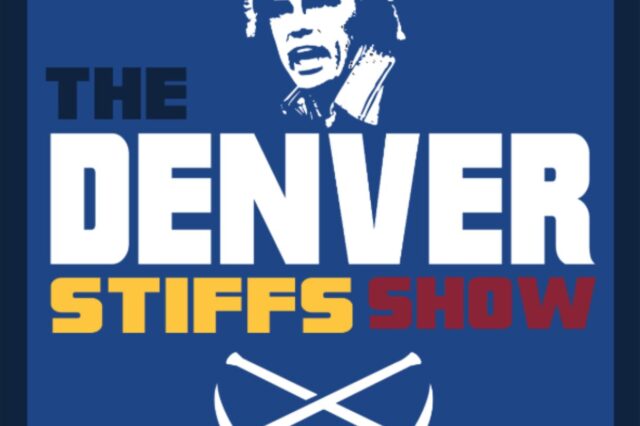December 20, 2006…it’s a date that is earmarked in Denver Nuggets history. Why? Two reasons, first it was the day the Nuggets sent Andre Miller, Joe Smith and two 2007 first round picks to the Philadelphia 76ers in exchange for Allen Iverson. The disgruntled superstar had worn out his welcome in Philadelphia and the Nuggets were looking to make a title contending move. By and large, the heavy lifting on Iverson’s resume was done in Philadelphia and his departure to Denver in many ways represented the beginning of the end of a hall of fame career. Though Nuggets fans may have got Iverson past his prime, his acquisition, presence and at times his still transcendent talent made him one of the most impactful players to suit up for Denver in past twenty years.
The Game
Iverson’s acquisition filled an immediate need for the Nuggets. The second reason December 20, 2006 is earmarked in Denver’s history is because that’s the day the NBA handed down a fifteen game suspension to Carmelo Anthony for his role in the brawl at Madison Square Garden with the New York Knicks. Melo, at the time, was the leading scorer in the NBA as the Nuggets had a solid open to the season. When he went down there was obviously a major hole to fill offensively and the Nuggets pulled the trigger on a deal which netted them the NBA’s second leading scorer at the time. Denver would finish out the season as a sixth seed and earn a first round match up with the San Antonio Spurs.
While Iverson’s scoring numbers would fall off once he was wearing the powder blue and gold, it had far much more to do with his reduced usage than a decline in his actual play. He had the best shooting percentages of his career while wearing a Nuggets uniform and also recorded some of the higher assist totals of his career too. Though he wasn’t the one man wrecking crew on offense that he used to be, there were still times Iverson showed his dominant scoring ability. He scored more than twenty-four points per game while playing for Denver, a feat that, after the days of Alex English, only Melo and Iverson can claim. Ironically though, perhaps his best game in Denver came in a loss on national TV to the Lakers where he delivered forty nine points in the first three quarters of play but only two in fourth. It was the first fifty point game for a Denver Nugget in twelve years.
There was a downside however to AI playing for the Nuggets. In order to acquire him they had to surrender Andre Miller who was the starting point guard and Iverson in reality was an undersized shooting guard. Denver desperately needed the aging scorer to modify his game more towards distributing and greater shooting efficiency once Melo returned from suspension but that was not his game. The Nuggets back up point guard at the time was Earl Boykins who was far too diminutive to pair with Iverson and while Denver quickly moved to acquire additional facilitators they ultimately would be left with starting Anthony Carter 67 games in the 2007-2008 and an offense that generally consisted of either a Melo or Iverson isolation with five seconds left on the shot clock. That style of play did not translate to post season victories and Iverson’s two playoff series with the Nuggets resulted in the team being dispatched with ease in the first round both times.
The Impact:
Beyond his contributions on the court, Iverson had a profound effect on the Denver franchise off of it. Not since the Nuggets acquired Alex English in 1980 had they traded for a a player with the talent or star power of Iverson. His fame was world renown thanks to a brilliant career in Philadelphia, including being named MVP of the 2000-2001 season where he led a 76ers team to the 2001 NBA Finals that had no business being there. He started seven all-star games prior to coming to Denver and would be selected to the all-star team in both of his seasons with the Nuggets. This type of notoriety helped bring the the team into the national and international spotlight.
Despite having Melo in the fold for three seasons the Nuggets had yet to be viewed as a championship contender as major free agent acquisitions like Kenyon Martin and Miller, while productive, fell short of expectations. Acquiring a bonafide super star like Iverson brought attention to the Nuggets that the franchise hadn’t seen since game seven against the Utah Jazz in the 1994 conference semi finals. His jersey was the third highest selling from 1998-2008, and he helped to massively increase viewership and fandom of the Nuggets across the world. The hype culminated with Stephen A. Smith predicting Denver would win the Western Conference prior to the 2007-2008 NBA season. I can not to my recollection remember another time in my entire life when a national analyst took the Nuggets in a preseason prediction of who would make the NBA Finals.
The Fallout:
The pair of early playoff exits with Iverson were especially damaging to the Nuggets. Stan Kroenke shelled out a ridiculous amount of cash including over $13 million in luxury tax for the 2007-2008 Nuggets Stephen A was so high on and what he got in return was Denver imploding in five games against the San Antonio Spurs in the 2007 playoffs and being unceremoniously swept by the Lakers in the 2008 playoffs. That offseason began the exodus of high dollar contracts starting with Marcus Camby, one year removed from being named defensive player of the year, being dealt to the Los Angeles Clippers for the right to swap second round picks. Iverson himself was on a massive expiring contract and there seemed to be an understanding that he was likely to test the market. He was quoted at training camp as being excited to be a free agent for the first time in his career. Just three games into the season, the Nuggets made a pre-emptive strike and traded him to the Detroit Pistons for Chauncey Billups and Antonio McDyess.
Ultimately, that worked out to be one of the best trades the organization ever made. Billups would help lead the Nuggets to the Western Conference finals and Iverson’s game declined quickly. He had the worst season of his career with Detroit, signed a one year deal with the Memphis Grizzlies the following season and lasted just three games before becoming disgruntled with playing time and ultimately separating ways with the team. He would later play 25 games with the 76ers that same season before leaving the NBA altogether.
AI’s time in Denver was met with brash excitement. It seemed logical that pairing the top two scorers in the NBA would reap great results for the franchise, perhaps even making them more competitive than they had ever been in their history. Unfortunately the teams defense suffered greatly on the court and their offense was too vanilla to be able to overcome the strategy of a seven game playoff series. Iverson’s impact on the team though can not be overstated, both in how he grew the Nuggets brand and how he altered their thinking on how to build a roster. While his tenure with the Nuggets was a mixed bag, his overall career is without a doubt worthy of the Naismith Memorial Basketball Hall of Fame. As is the case so often, for the Nuggets the Answer just came a little to late.


